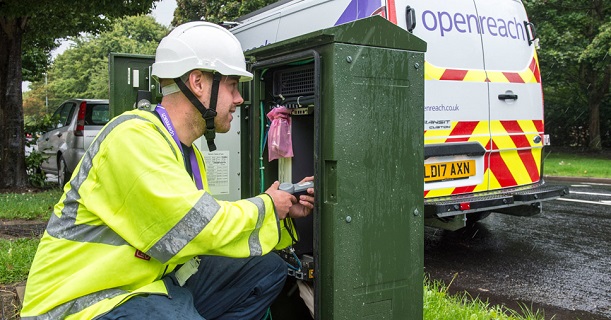Openreach’s fibre will pass 4 million premises by March 2021, up from 1.247 million now.
Previously the company had said it would pass 3 million premises by that date and intends to pass 15 million by ‘the mid-2020’s’, replacing its earlier target of 10 million by the middle of the decade.
Regulatory support
There was a caveat: that the goals are only possible in the right regulatory conditions that would ensure it gets a fair return on investment, and also help it obtain wayleaves at affordable prices as well as extend relief on business rates – that is locally levied tax.
EE’s launch of 5G is imminent, the company said, and its mobile unit is on schedule to provide 5G coverage to 16 cities during this year with various device partners. The roll-out will begin with the capital cities of Belfast, Cardiff, Edinburgh and London, followed by Birmingham and Manchester.
The “busiest areas” of ten more cities will follow, built on 1,500 4G sites.
BT did not reveal figures about the take-up of mobile subscriptions by its EE mobile business.
Profits to fall next year too
The Group’s total annual profits fell by 2%, with BT’s new CEO, Philip Jansen acknowledging this needed to be addressed, adding that the company “would explore all options” to finance its ambitious fibre deployment plans.
It will cost as much as £15 billion to roll out fibre to 8 million homes.
BT predicted adjusted revenues would decline by 2% in the current financial year.
Jansen said that the three-year recovery plan put in place last year by his predecessor Gavin Patterson, was on track.
It includes cutting 13,000 jobs, but recruiting 6,000 more field engineers, and selling off its HQ in the City of London, next to St Paul’s Cathedral.
BT’s shares have fallen 8% so far this year.



